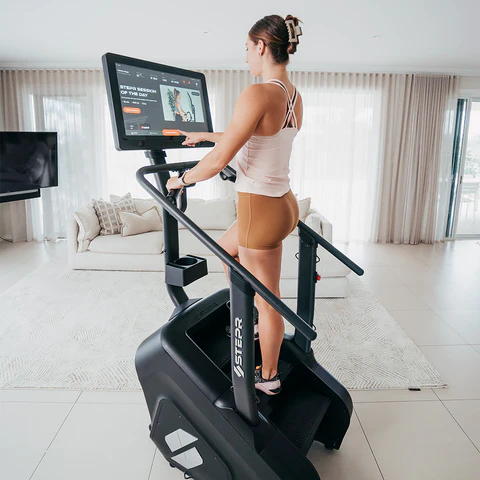
It is not the same as going to the gym for a couple of days to do some gentle routines, lasting 4 or 5 with a strict plan to achieve certain adaptations. Or, directly, be a professional athlete. Both the diet for high-performance athletes, as well as that of those who take it with determination and discipline, must be individualized according to the physical characteristics of the athlete (age, sex…), planning, goals and “the energy-nutritional needs of each person.” athlete to cope with his training,» says Néstor Vicente-Salar, a dietitian-nutritionist specialized in sports nutrition.
Plan the menu according to your training plan
To achieve the best sporting results you need three things:
- Train with an adequate and individualized plan
- Adapt the diet to that plan
- Rest enough to ensure good post-exercise recovery.
The weekly diet for athletes should try to respect the different strategies in sports nutrition that have been shown to be useful for improve recovery and performance. «Sometimes it can be complex, due to schedules or desires. For this reason, nutritional planning must seek to optimize the resources available to the athlete,» suggests Néstor Vicente-Salar, member of the Spanish Academy of Nutrition and Dietetics.
If fitting training together sometimes requires a great effort, adapting daily nutrition to the competition calendar in many cases involves a real effort. “Following a strict menu can be complicated, especially when you cannot control cooking, schedules or food availability. This is where the athlete’s dietary-nutritional education comes into play,” declares the expert.
It refers to those cases in which there are work trips, schedule changes or meals with clients in which the most convenient dietary instructions cannot always be followed. “Having the advice of a sports dietitian-nutritionist provides the knowledge and resources to make the best choices, even in a changing and/or limited scenario,” says Vicente-Salar, who is also a doctor in Biology and professor in the Nutrition Area. from the Miguel Hernández University.
Differences in preseason and competition diet
The athlete must always keep two concepts in mind: his personal characteristics and sporting objectives, and the Training volume and intensity determined by the moment of the cycle you are in.. «It is not the same to be at the beginning of the preseason as at the end of it. Nor during the competitive period or when the athlete rests, since he has a lower energy expenditure. The requirements, both energy and nutritional, must be adjusted to these demands» says Vicente-Salar.
The Athletic discipline and its duration also determine the diet of athletes. «The days before a competition for a long-distance athlete, such as a marathon runner, a road cyclist or a medium/long distance triathlete, are very important in order to carry out strategies that will allow them to go to the competitive event with the maximum energy reserves (glycogen)», points out the expert. «Other disciplines, such as sprinters or throwers, do not need a special strategy the days before because their tests are not of excessive duration.»
Regarding the recovery phase, it is very important «to achieve the appropriate level of carbohydrates, proteins, hydration, electrolytes and antioxidants, always adapting to the sporting discipline and individualizing it.»
Carbohydrates, beyond chicken with rice
High-intensity and/or long-duration exercise can deplete glycogen reserves, and therefore, reduce athletic performance. To always keep them at optimal levels, «the proportion of carbohydrates (whole grains -rice, pasta, oats…-, potatoes, sweet potato, fruits and vegetables) It is normally higher than that of the rest of the macronutrients. Especially in long-duration aerobic endurance disciplines, or in acylic sports that are characterized by different movements and intensities (for example, soccer or tennis),» he maintains.
The scientific literature on diets for athletes advocates considering intakes of this macronutrient based on the grams needed per unit of lean weight per day rather than on proportions. If the requirements are very high, you can use nutritional supplements with a high density of carbohydrates, such as shakes, gels, bars, sports drinks…
Importance of fiber in the athlete’s diet
The consumption of carbohydrates with a high dietary fiber content (cereals, fruits, legumes and vegetables) provides undoubted benefits:
- safeguards athlete performance
- module immune system before the extenuating exercise
- preserve gut microbiome health
It is not advisable to take fiber in the days before the day of the competition. Especially in long-term ones, to avoid gastrointestinal discomfort.
Proteins in the sports diet
Again, protein needs will depend on the sporting discipline. «Strength and power athletes, such as sprinters, throwers, bodybuilders, among others, usually need high daily protein intakes in order to maintain their muscle mass and/or increase protein-muscle synthesis,» says the expert. . On the other hand, «in athletes from other more aerobic disciplines, such as long-distance runners or cyclists, their needs are lower.»
The preferred protein sources are usually based on poultry or lean meats, fish, eggs, dairy products, legumes and protein sources of plant origin (seitan, tofu or textured soy among others). Sometimes creatine supplementation may be recommended.
Normally, the protein intakes of athletes are usually higher than those of the non-athletic population. “They need to restore the damage caused by physical exercise,” she clarifies.
Healthy fats, yes, of course.
United Nations good lipid profile in daily intakescam greater presence of monounsaturated fatty acids than polyunsaturated fatty acidsand both in a higher proportion of saturated, reduces the risk of suffering from cardiovascular diseases.
Furthermore, «the Omega-3 fatty acids (present, for example, in fatty fish) or walnuts are a type of essential polyunsaturated fatty acid with a very important role in sports recovery due to its anti-inflammatory effect. They should be consumed in greater proportion than omega 6 fatty acids, present in seed oils such as sunflower or corn.
Food sources rich in healthy fats include olive oil, small fatty fish and nuts.
Should I include extra probiotics in an athlete’s diet?
Although there is unanimity about the benefits of fermented foods in general health, «at the sporting and performance level it is not entirely clear. Given the reasonable probability that athletes experience symptoms of intestinal and/or respiratory diseases At some point during a training and competition season, a Prophylactic supplementation with probiotics before specific periods could be helpful. However, recent research points to results in very specific groups and particular contexts.»
For a probiotic supplement or food to have a specific effect, the number of bacteria that must reach the intestine, as well as the specific strain, must be adequate. “Not all probiotics are useful in health and sports contexts,” she warns.
Water in a diet for athletes, is two liters enough?
Vicente-Salar advises adapting water intake to the water needs of each athlete without falling into clichés such as drinking two liters of water a day. “If exercise takes place in outdoor environments with heat and humidity, we will need more water because we will sweat more,” he says.
One of the best ways to see that we are properly hydrated is to pay attention to the color of our urine. During the day it should have a light or transparent tone. If it is darker, you have to drink more.
How much salt does a professional athlete need?
The WHO recommends a maximum of 5 grams of salt per day for the general population. For athletes, they are significantly more “due to the loss of electrolytes (especially sodium) through sweat during exercise. They must be replaced both during and after the activity to maintain that electrolyte balance and not affect performance and recovery,” summarizes Vicente-Salar.
Many commercial brands have designed sports or isotonic drinks (with an osmolarity similar to that of blood plasma) to replace fluids, carbohydrates in the form of sugars and electrolytes. “There are even guidelines for electrolyte replacement with more concentrated drinks on sale (hypertonic), in order to produce greater water retention in the athlete after exercise. All of this must be guided by the sports dietician-nutritionist,” concludes the expert.
The entry Diet for high-performance athletes: learn to eat according to your training plan was first published in Nutriiendo.






